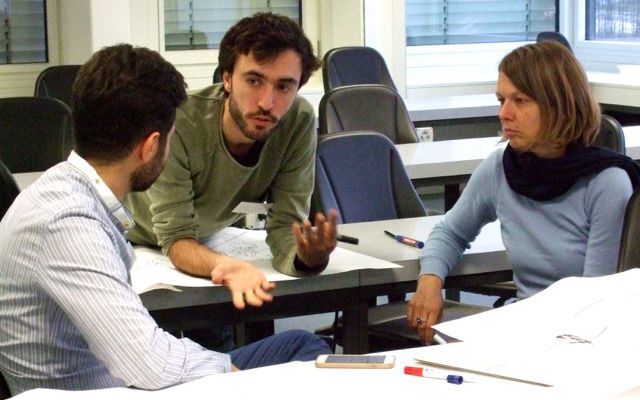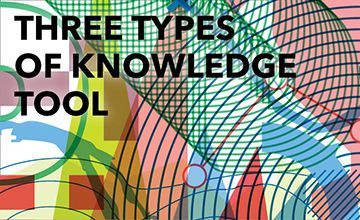Three types of knowledge tool
A tool for tailoring research questions to (societal) knowledge demands.
Pohl C 2022. Three types of knowledge tool. td-net toolbox profile (19).Swiss Academies of Arts and Sciences: td-net toolbox for co-producing knowledge. transdisciplinarity.ch/toolbox. doi.org/10.5281/zenodo.7015070
| What is the three types of knowledge tool? | The three types of knowledge tool serves reformulating research questions in order to check what (societal) knowledge demands the questions meet. Three versions of a research question are generated, each stressing a different type of knowledge:
On the basis of the different versions, the most relevant one with respect to (societal) knowledge demands can jointly be identified. |
| Why should it be applied? | When formulating research questions, researchers generally follow the standards of their thought style. Whether this answers relevant (societal) knowledge demands is unclear. The three types of knowledge tool reveals some of the implicitly applied standards and allows for jointly deliberating and deciding on the relevant question(s) to pose. |

| When should it be applied? | The three types of knowledge tool supports problem framing. It is typically used when discussing and fine-tuning research questions, but can be applied at any stage as an instrument of reflection. |
| How does it work? | Take as an example a joint project between a humanities and a medical researcher, in medical humanities. The agreed topic of the project is: “Visualizing brain activities to improve health of epilepsy patients”. In the three types of knowledge this topic can be reformulated as follows:
|
| How are thought-styles bridged? | When applied in heterogeneous teams, the three types of knowledge tool bridges thought styles by revealing their implicit assumptions about ‘good’ research questions. Perhaps the reformulation reveals that the humanities researcher is interested in how the concept of a healthy brain is influenced by visualisation technologies. Whereas the medical researcher is interested in using the visualisation to improve patients’ health. Uncovering the assumptions allows for finding a joint question or for harmonizing the individual questions. |
| What’s the output/outcome? | The output is an explicit deliberation and decision on the main research question(s), on how the questions relate to each other, and more clarity about what societal knowledge demand is met. The outcome is an increased understanding of each other’s and joint research interests. |
| Who participates in what role? | A facilitator should lead through the reformulation process. Participants should feel comfortable with formulating research questions. They may encompass academic and non-academic actors with various backgrounds. |
| What do I need to prepare? | The reformulation requires flipcharts and marker pens. Before using the method for the first time, the facilitator should practice reformulation with a few examples and make sure that s/he has understood the distinction between the three types of knowledge. |
When not to use this method? | When there is no flexibility in adapting the research questions and no follow-up project is planned. |


